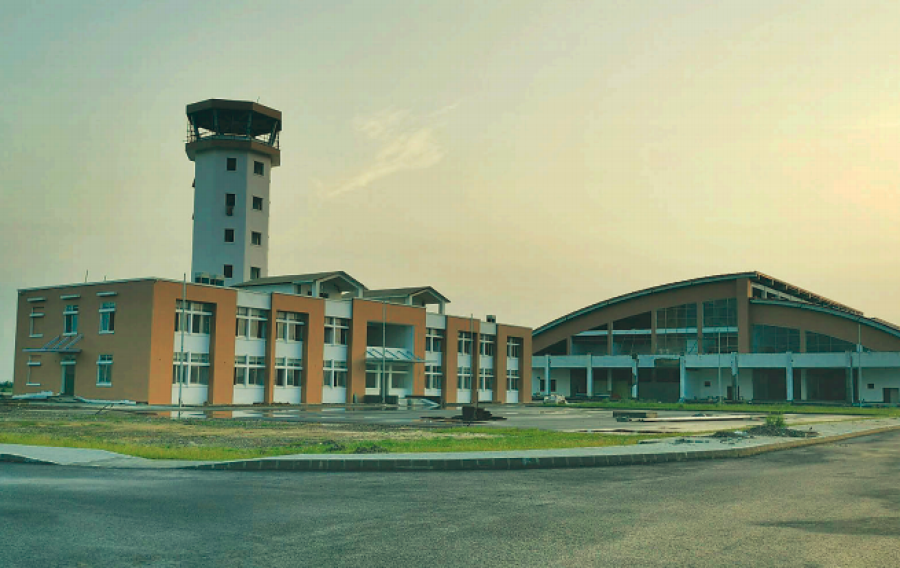Editorial
Work must go on
The government must allow infrastructure projects to resume construction work.
Nepal has finally allowed resumption of international flights beginning Tuesday, September 1, after a halt of over five months. Thousands of Nepalis who have been unable to return to Nepal will also get relief. Similarly, thousands of those who have been confined to Nepal due to the absence of flights will be able to travel abroad. This has also come as a big relief for major infrastructure projects that have had to halt construction work due to the inability to bring in consultants from abroad.
The Covid-19 pandemic has delayed dozens of projects from both private and government sectors that were on their final lap, including Gautam Buddha International Airport in Bhairahawa. Many infrastructure projects are reported to have suffered due to the lockdown and ban on international flights because foreign technical manpower and experts could not be brought in. The work of several hydro projects has been delayed. The Upper Tamakoshi Hydropower Project in Dolakha, Dhalkebar-Muzaffarpur cross-border transmission line project and Rani Jamara Kulariya Irrigation are some major schemes where work has been delayed due to constraints in bringing equipment and technical workers from abroad.
In the case of the international airport in Bhairahawa, foreign technical manpower that was set to arrive to install the runway lighting system and other equipment reportedly got stuck due to the halt in international flights. Upper Tamakoshi, the country’s largest hydropower plant, is also awaiting foreign technical manpower for the commissioning and testing, the final phase before production begins. Experts say as much as 1,500 megawatts of electricity would have been connected to the national grid had the pandemic not unsettled the timetable of the hydro projects. The delay in several such major projects, while causing cost overruns, will also impact the economy negatively.
Media reports from various parts of the world show construction work has moved ahead in full swing despite initial hiccups in the wake of the pandemic. India has said vital railway infrastructure projects including high-speed corridors, dedicated freight corridors, signalling projects and projects for launching new trains will go on as planned even in the midst of the pandemic. The construction of the infrastructure for the 2022 World Cup in Qatar has also not halted. Several states in the United States went ahead with construction work, calling it ‘essential business’ even as other business sectors were hit hard by the pandemic. So much so that work on the US-Mexico border wall was reported to have proceeded despite the pandemic when much of the economic activities have slowed down.
The infrastructure projects should be allowed to reopen by complying fully with safety protocols. The government can get the projects to conduct PCR tests on their workers, especially those who have been exposed to coronavirus hotspots or are returning from abroad. In any case, the government’s guideline for the resumption of international flights mandates that travellers need to have got PCR tests done in the 72 hours prior to the flight. If the workers who test negative for coronavirus are allowed to work, it also helps them resume their normal lives without the financial burden they have had to undergo while staying home. If the workers cannot get back to work, they risk suffering from psycho-social problems apart from financial stress. The work, therefore, must go on despite the pandemic. As the world learns to live with the coronavirus, the point is to maintain optimal safety standards even as we resume work and get the economy going.




 9.89°C Kathmandu
9.89°C Kathmandu














